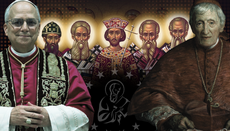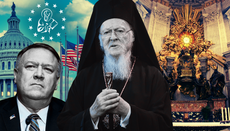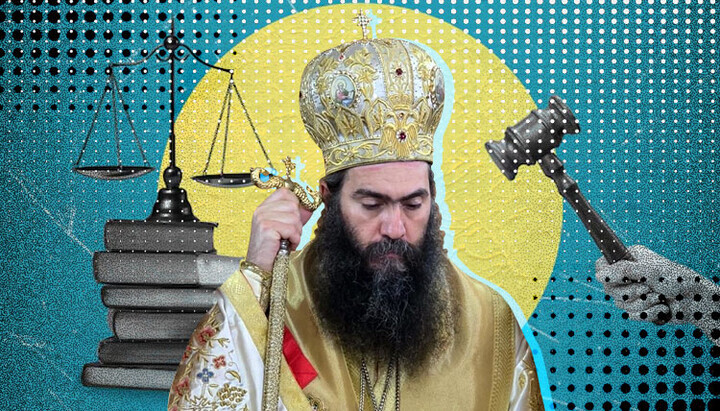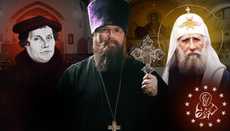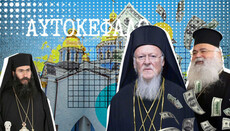Lowest Common Denominator Christianity Lacks True Commonality
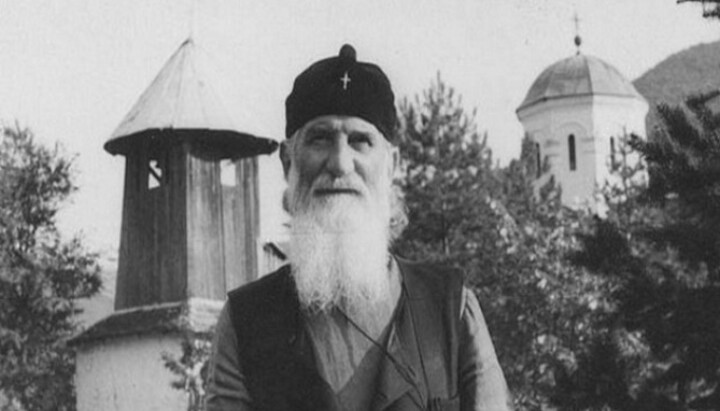
A reflection on the ecumenical prayer service held at Our Lady of Lebanon Maronite Catholic Cathedral in Brooklyn, N.Y.
As reported on Thursday, May 22, by UOJ, Rev. Protopresbyter Andreas Vithoulkas, Archiepiscopal Vicar of the Saint Nicholas Greek Orthodox Church and National Shrine in New York, represented His Eminence Archbishop Elpidophoros of America during an ecumenical prayer service celebrating the 1700th anniversary of the first Ecumenical Council of Nicaea.
The prayer service was held at Our Lady of Lebanon Maronite Cathedral in Brooklyn, N.Y., and was organized by Maronite Catholic Bishop Gregory Mansour and the Eparchy of Saint Maron of Brooklyn, with the participation of Cardinal Timothy Dolan, Roman Catholic Archbishop of New York.
The general idea behind these ecumenist commemorations of the First Ecumenical Council (an example of something that is truly ecumenical) is that all Christians, or at least those who are seen as having material apostolic succession, can agree on the basics.
But what is most important in the apostolic succession equation is the possession of apostolic teaching. When observing these commemorations, then, it is not only important to look at the event itself, but also what its participants believed it to be.
And in typical fashion, Cardinal Timothy Dolan, Roman Catholic Archbishop of New York, was quick to share his thoughts.
During his homily at St. Patrick’s Cathedral in New York City on Wednesday, Cardinal Dolan said that the Council of Nicaea “gave us the Creed we say every Sunday.”
Before diving into that statement, Cardinal Dolan begs the question from any Orthodox Christian with their head on straight:
What Creed was recited at this ecumenical prayer service?
If it was the original Nicene-Constantinopolitan Creed, which states that the Holy Spirit proceeds only from the Father, then Cardinal Dolan would be incorrect in what he said.
But if it was the Creed which includes the heretical filioque innovation, then Cardinal Dolan would be somewhat correct in what he said to his own flock while being incorrect in its history and original form. Most importantly, we have to ask ourselves if an Orthodox priest participated in a service which included this heretical Creed.
This wishy-washiness and lack of clarification is exactly the issue, though. Unless you chose to be present at the event, you will likely never hear which Creed was recited at this prayer service. All that matters at these events is the practice of lowest common denominator Christianity, and ambiguity on supreme matters like the Symbol of Faith.
Sure, one could argue that we are united against Arianism and we, along with Catholics, affirm the eternal divinity of Christ. However, the demotion of the Holy Spirit, which is the consequence of the filioque heresy, is just another error in the West’s understanding of the Godhead. What good is it to come together on our unity against Arianism when it was simply replaced with a heresy against the Holy Spirit?
Another striking comment Cardinal Dolan made in his homily was the mention of the Council of Jerusalem, which is detailed in Acts 15, and his mention of there being 21 ecumenical councils, with the most recent in the Catholic understanding being Vatican II in the 1960s.
There are two things to unpack there:
- The Council of Jerusalem sets the conciliar model of the Orthodox Church and is a complete refutation of Catholic understanding when it comes to the primacy of St. Peter and his See.
- Another mention of the quiet part out loud – that we are acting as if we have the First Ecumenical Council in common with bishops who believe that there are 21 of them in total.
There are other major differences, as well.
Canon 6 of the First Ecumenical Council states:
“Let the ancient customs in Egypt, Libya and Pentapolis prevail, that the Bishop of Alexandria have jurisdiction in all these, since the like is customary for the Bishop of Rome also. Likewise in Antioch and the other provinces, let the Churches retain their privileges.”
More simply put, this canon demonstrates that the ancient practice was for Churches in major cities to have full jurisdictional authority only over the surrounding region.
As someone who lives in Omaha, Neb., where Catholic Archbishop George Lucas recently resigned, it was quite interesting to see the words, “Pope Francis appoints Bishop Michael McGovern as Archbishop of Omaha.”
This centralization of authority is completely foreign to the ancient Church and to the preserved practice of the Orthodox Church today.
Another glaring difference is the calculation of Pascha. While there has been plenty of teasing of reunification when it comes to the specific issue of our differing models for the calculation of Pascha, the point remains – the Orthodox Church still follows the model set forth by the fathers of the Council of Nicaea, and the Catholic Church does not.
If we go down the list of the rest of the ecumenical councils which we supposedly hold in common before the Great Schism, we will find more differences and innovation in Catholic practice.
So, what does this ecumenical prayer service mean? Nothing and everything.
There is no real substance to what is essentially a photo opportunity for all involved.
There is the reduction of corporate prayer from something that informs and guides our every step while displaying unity in the Body of Christ to a mechanism employed for superficial harmony.
There is the misleading moral high ground of “setting aside our differences” that is really a betrayal of the faith.
And, finally, there is the scandalizing of and unanswered questions from the Orthodox faithful who strive to uphold the Faith of the Apostles, the Faith of the Fathers, the Faith of the Orthodox and the Faith that has established the universe.
“Ecumenism is a common name for the pseudo-christianities, for the pseudo-churches of Western Europe. Within it is the heart of all European humanisms led by the Papacy. All these pseudo-christianities, all these pseudo-churches are nothing more than one heresy next to the other. Their common name is pan-heresy.”
- St. Justin Popovic
Let us be sober and vigilant, guarding ourselves from the pan-heresy of ecumenism – an infection that is spreading among Orthodox Christians who have disregarded the cure in the name of finding the lowest common denominator.
